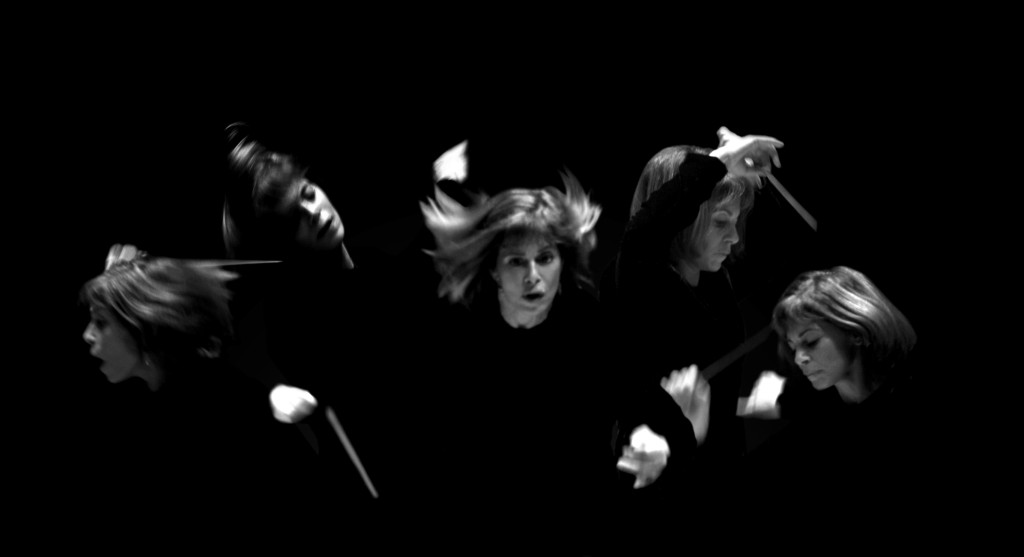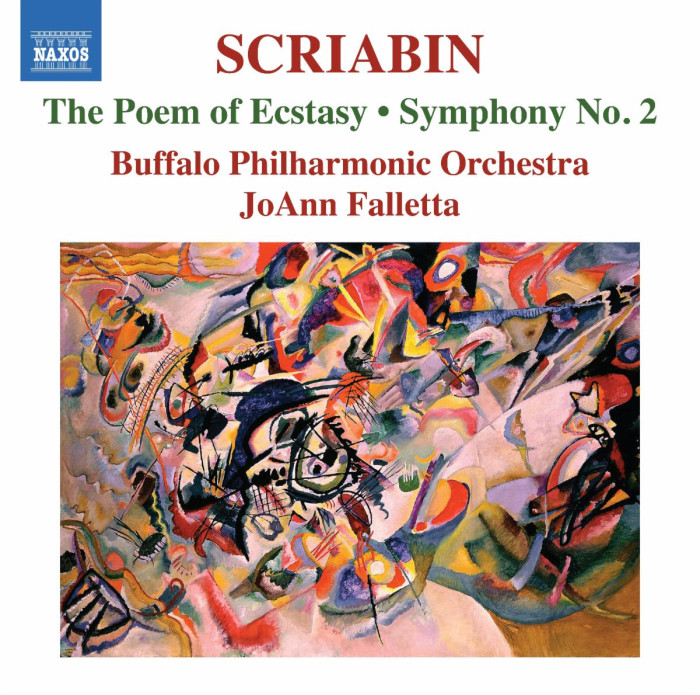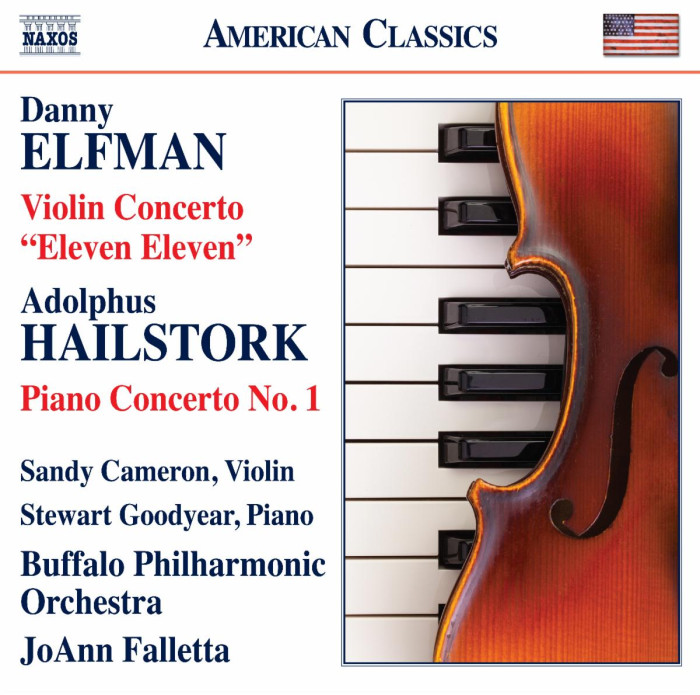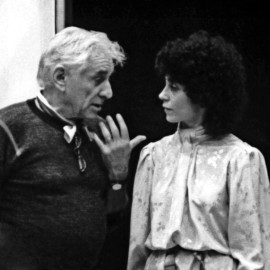Interview with Maestro JoAnn Falletta

Maestro JoAnn Falletta. Mark Dellas
This month, we had the immense privilege of sitting down with trailblazing conductor Maestro JoAnn Falletta to discuss her two latest recordings—an album of orchestral music by Alexander Scriabin and a disc of concertos by contemporary American composers Adolphus Hailstork and Danny Elfman.
Recently named one of the “Fifty Great Conductors,” past and present, by Gramophone Magazine, the multiple-Grammy-winning conductor currently serves as the Music Director of the Buffalo Philharmonic Orchestra, Music Director Laureate of the Virginia Symphony Orchestra, Principal Guest Conductor of the Brevard Music Center, and Artistic Adviser of the Hawaii Symphony Orchestra. When she accepted the directorship at the Buffalo Philharmonic in 1999, she was the first woman ever to lead a major American ensemble. She has since conducted many of the world’s top orchestras, including more than 100 orchestras in North America. She is a leading recording artist with Naxos Records with an extensive discography focusing largely on music by lesser-known and contemporary composers. Her upcoming album of American concertos marks her 125th recording—a towering achievement.
Maestro Falletta said that taking this approach to recording has sent her “on a path of discovery.” Before partnering with Naxos, she was already ahead of the curve in shedding much-needed light on forgotten repertoire. “The very first disc I ever recorded was with an orchestra I conducted long ago—The Women's Philharmonic—and we were recording music written by women of the past that no one had ever heard of,” she explained. “So, I think it just gave me this interest in not always going with things that everyone knew, but trying to find other things.”
When Naxos later approached her, they asked her to seek out music for which there were no, or very few, recordings. “That was an interesting challenge because they have almost everything in their library,” she noted. However, she stressed that there is still a wealth of great music to discover by forgotten artists of the past and composers writing now. “I just have to sort of shake my head in amazement that there’s so much music that I will never know," she mused.

Her first album of 2023, released February 10, features orchestral music by Russian composer Alexander Scriabin. The disc opens with one of Scriabin’s most famous works, The Poem of Ecstasy, alongside his lesser-known Symphony No. 2. Recorded in March 2022, it marked the Buffalo Philharmonic Orchestra's return to the recording studio after a two-year forced hiatus due to COVID-19.
During the height of the pandemic, the Buffalo Philharmonic continued to play, but in smaller numbers and with other protective measures in place, such as masks, distancing, and plexiglass partitions. But restrictions eased enough by March 2022 that the orchestra could finally return to the studio in full force. “When we came back for the Scriabin recording,” Falletta said, “it was no masks, and we could play sitting together. And it was thrilling to do this big, big project.”
For those unfamiliar with Alexander Scriabin, Falletta described him as “a kind of mystic” who “thought about music in a very philosophical, spiritual way.” He was a synesthete, meaning he saw musical pitches and keys as specific colors. This ability manifests in his music, where “every tone has a different perfume.” Falletta described Scriabin’s music as “an extraordinary mixture” of powerful, Russian Romanticism with the “subtlety and sensuality of French Impressionism.” This is especially apparent in Scriabin’s later work, The Poem of Ecstasy.
Though The Poem of Ecstasy is standard repertoire, the rest of Scriabin’s output has fallen into relative obscurity. “He was very popular in his lifetime,” Falletta added. “He had a whole group of acolytes, and even today, I think there are people who love his music, and people who have never heard it. There are very few composers like that.” She hopes this album will create new Scriabin fans and that his other works—including Symphony No. 2—will find their way onto more concert programs.

Maestro Falleta’s second album of the year, which comes out on March 10, presents two very different but complementary concertos by contemporary American composers. The first is Danny Elfman’s Violin Concerto titled “Eleven Eleven” with violinist Sandy Cameron as the soloist.
Elfman comes to the classical concerto genre from a unique perspective. His background is in rock music as a founding member of the band Oingo Boingo. You may also recognize his name from the credits of some of your favorite shows and movies. For instance, he wrote the iconic theme song for The Simpsons as well as the film scores for Good Will Hunting, Men in Black, Edward Scissorhands, Tim Burton’s Batman, and much more. Since the early 2000s, Elfman has committed to writing at least one “serious” concert piece per year. Elfman wrote “Eleven Eleven” specifically for the soloist on this album, Sandy Cameron, whom he met working on a Cirque de Soleil show in 2011.
As a film composer, Elfman is accustomed to writing for huge orchestras with masses of percussion and brass. To prevent the orchestra from covering the soloist, the solo violin is slightly amplified. But you wouldn’t necessarily know it from listening to the recording. “It’s just so natural sounding,” Falletta said. “But it does enable you to hear the violin against a very powerful background. And that’s what’s so amazing. In a sense, amplified violin opens up a different world for the player because when you work with acoustic instruments, you have to always be careful to not cover them. In this case, you don’t have to be careful. And it gives it a kind of raw power and strength and also the capability of nuance that other instruments might not have.” The sound world Elfman creates has led Falletta to call the concerto “a city noir piece” that, she jokes, “is what it would sound like if Batman played the violin.”
Adolphus Hailstork, on the other hand, comes to the genre of the classical concerto from a slightly more traditional background. The liner notes read, “the music of Adolphus Hailstork draws from different continents, with his life as an African American and love of jazz and blues tethered to an American eclecticism, held together by a deep understanding of Western classical tradition.” This deep understanding was fostered while studying with legendary French music teacher Nadia Boulanger, who taught many prominent American composers, including Aaron Copland, Elliott Carter, and Philip Glass.
Hailstork and Falletta go way back; they actually lived in the same apartment building in Norfolk when Falletta was the Music Director of the Virginia Symphony Orchestra. They soon struck up a fruitful professional relationship. “He was, in a sense, Virginia Symphony’s Composer-in-Residence,” she explained. “Everything he wrote, we played for him. And he wrote this piano concerto for us.” The Virginia Symphony premiered Hailstork’s Piano Concerto No. 1 in the orchestra’s first appearance at Carnegie Hall in 1997. At the time, Falletta declared the work, “one of the greatest American piano concertos since Gershwin’s Concerto in F.”
Falletta maintains that opinion to this day. When asked what makes Hailstork’s work so compelling, she responded, “It’s who he is, his background—his African American roots, his love of jazz, his absolute lyrical gift for writing gorgeous melodies—all of that is in this piece. I mean, no one but an American could have written this. And it's brilliant. It’s a virtuoso showpiece for [piano soloist] Stewart Goodyear, who is a great virtuoso. But it also has just so much relevance to our world, growing up in America and being willing, as he was, to take every influence possible, whether it was a folk song, or spiritual, or jazz and make it work in a classical setting in the form of a concerto.” As is often the case with contemporary music, the piece has languished somewhat since the premiere. With this recording, Falletta hopes that it sees a renaissance: “I can't wait till it bursts on the scene and people say, ‘Where has this been for 25 years?!’”
Because March is Women’s History Month, we concluded our interview by asking our guest what advice she has for young musicians—particularly women—looking to enter the field of conducting. She believes the void of women conductors is starting to be filled: “I remember when I first started conducting thinking, well, it’s going to happen now quickly. Once we started to have women in orchestras, then all of a sudden, we had lots of women in orchestras. So much happened quickly…but now I think, for young women, the door is open.”

Falletta with Leonard Bernstein
Photo Credit: Louis BrunelliThe best advice she received as a student is to approach the podium from a stance of humility. “Initially, a lot of people think of the conductor as a position of tremendous power,” she said. “But it’s not about power. It’s about responsibility. You are responsible for helping your musicians succeed and be the best musicians they can be in an environment where they can flourish. And that’s a tremendous responsibility…The talent of any orchestra is so overwhelming. And when you think about those 85 or 100 people, when they started playing their instrument (which usually is when they were very young), how many years they’ve played, how many hours a day they practice, how many music lessons they’ve taken. It's quite astonishing to have that body of knowledge and talent and inspiration on the stage. To be in the middle of that is very humbling. So, in a sense, you don’t feel powerful. You feel, in a way, that you have the responsibility of taking care of this extraordinary, extraordinary group of people.”
That responsibility extends beyond supporting the players to a wider duty to preserve the art form and to help it grow. “We have a wonderful canon of the past that we will always treasure,” she continued. “But how do we open the door to twenty-first-century music for our audiences? So it requires total dedication, but it’s the most beautiful world imaginable.”
You can listen to Alexander Scriabin: Poem of Ecstasy and Symphony No. 2 wherever you stream your music. Go to Naxos’ website for more information.
Danny Elfman: Violin Concerto “Eleven Eleven”; Adolphus Hailstork: Piano Concerto No. 1 will be released on March 10, 2023.



